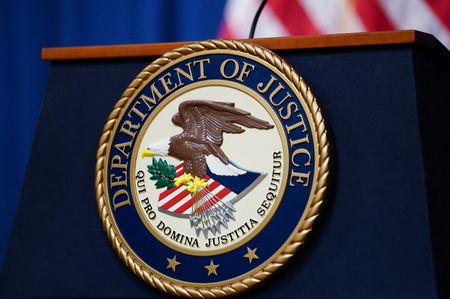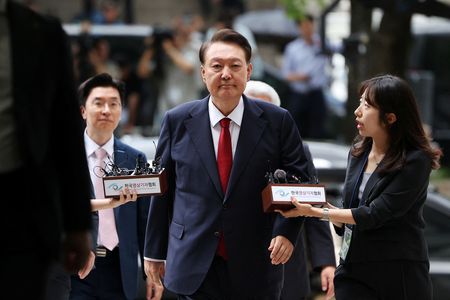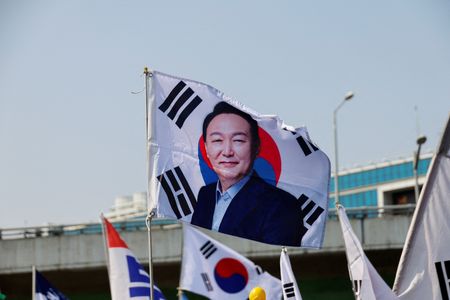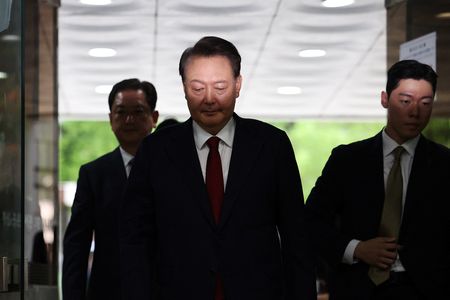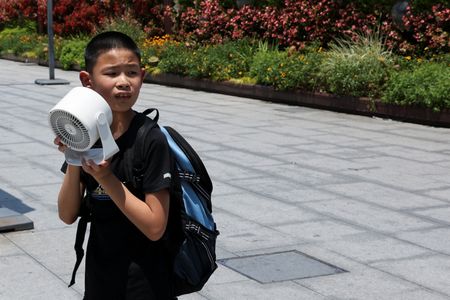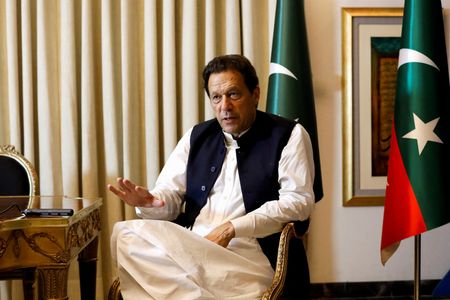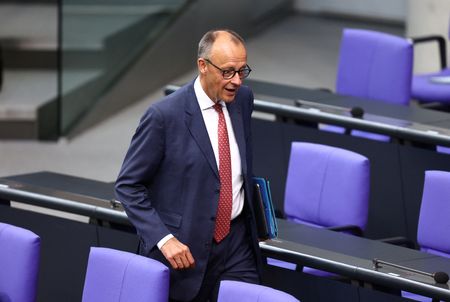By Dan Peleschuk
KYIV (Reuters) -Ukraine said on Wednesday it had detained a Chinese father and son, both suspected of spying on its prized Neptune anti-ship missile programme, a key part of Kyiv’s growing domestic arms industry critical to its defence against Russian invaders.
The announcement by the Security Service of Ukraine (SBU) follows assertions by Kyiv in recent months that Beijing, which has sought to project an image of neutrality, is helping the Kremlin’s war effort.
Counterintelligence officials arrested a 24-year-old former student in Kyiv after they provided him with “technical documentation” related to Neptune production, it said in a statement.
They later detained his father, who had aimed to smuggle out the documents to the Chinese special services, the SBU said. The father had been living in China but visited Ukraine to “personally coordinate” his son’s work, the agency said.
A Ukrainian official told Reuters the two men were the first Chinese people arrested for spying since Moscow’s 2022 full-scale invasion.
The Chinese Embassy in Kyiv did not respond to a request for comment and a lawyer for the men could not immediately be found.
President Volodymyr Zelenskiy has accused China of supplying weapons and gunpowder to Russia, and has sanctioned Chinese firms Kyiv believes are aiding Moscow’s war machine, including by providing components for drones.
He has also said Ukrainian forces have captured Chinese nationals fighting for Russia on the battlefield.
Though Beijing is an ally of Moscow, it has aimed to cast itself as a peacemaker in the war and says it has not armed either party. In May, Chinese President Xi Jinping travelled to Moscow for a pomp-filled visit that included talks with President Vladimir Putin.
Ukraine’s Neptune missile was used to destroy the flagship of Russia’s Black Sea Fleet in the first months of the war. It has also since been fired at other targets including Russian oil terminals.
Kyiv is strengthening its domestic defence sector amid mixed signals on future support from the U.S., its top military backer, and as Europe struggles to ramp up its own production.
(Reporting by Dan Peleschuk; Additional reporting by Tom Balmforth in London; Writing by Dan Peleschuk; Editing by Timothy Heritage and Alex Richardson)

